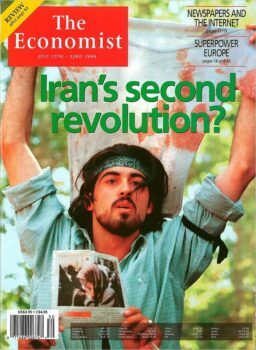“NGOs: In the service of Imperialism” by James Petras scientifically unpacks imperialism in contemporary communities of the global south. Prompted by the premise that capitalism, and by extension imperialism, is constantly evolving in an effort to perpetuate itself. James Petras takes neo-compradors as the unit of analysis for his study of imperialism.
The purpose of studies like this is a profound frustration with contemporary leftist discourse which has distorted Scientific Socialism, under the pretext of modernizing an outdated theory, into an ideology of political activism institutionalized by NGOs and sponsored by Western funds while employing revolutionary idioms.
Premises of Petras’s Conception of Imperialism
First premise: Imperialism is a necessary byproduct of the development of capitalism. From being an institutionalization of free competition into developing monopolistically by employing banks and then offshoring industries to maximize gains by capitalizing on cheap labor and looted resources.
Second Premise: Imperialism as an advanced epoch of history is preceded by colonialism. The armies of Great Britain and France were at the lead in the conquests of colonizing other nations: looting the resources and exploiting the peoples of these nations for their own ends through direct occupation.
Third Premise: Imperialism, like capitalism from which it develops, is conditioned by a contradiction of exploitation. The latent contradiction is comported (or poised) towards resolution by a revolutionary antithetical force (the anti-imperialist party, the proletarian party respectively) that would aim to negate the affirmed (imperialism, capitalism respectively) and thus upset the status quo.
Fourth Premise: Reactionary forces aim to perpetuate the contradiction of exploitation. What is novel to James Petras and the handful of disciplined anti-imperialist socialist academics is recognizing that the Reactionary forces (actors and tactics) which aim to perpetuate exploitation are dynamically evolving historically to ensure optimal results: assuming different actors which appeal to different demographics and employ different tactics, carrot and stick, to incentivize or terrorize different demographics.
The contradiction of exploitation latent in capitalism is extended to imperialism given that the latter is a byproduct of the former. The exploitation of workers by the capitalist develops an international dimension beyond its national dimension. The offshoring of exploitation was first executed by direct occupation and/or settlements (i.e. colonialism) then by mediated control (i.e. compradorialism) then by co-opting social movements (neo-compradorialism).
Compradors in South West Asia
European settler colonies slowly crumbled across the world under the plight of indigenous liberation movements but also for being contended by the slowly emerging US empire. Imperialism succeeded colonialism as the international regime of systematic exploitation. The colonialist tactics of hegemony were replaced by imperialist tactics of hegemony. One tactic of imperialism is consolidating indigenous regimes subordinate to the former colonizer by establishing the local bourgeoisie (and/or feudal lords) as the ruling class who enjoy close affinity with former colonizers. This formula of governance allowed the colonizers to preserve their interests in their former settler colonies behind the façade of self-determination.
The Levant
In Lebanon, liberation from french colonization left in its wake a handful of upper-class families from various urban elites in charge. Some of the oligarchies were closely linked to the french due to religious affinity, familial bonds, and most importantly common interests. In Iraq and Jordan, the Hashemite dynasties succeeded British colonialism.
The Gulf
The succession of authority in the Gulf was different. Arabia and Persia weren’t colonized but they too fell victim to native compradors with ties to Britain. In Iran, the Pahlavi dynasty was appointed to rule over the oil-rich central Asian country. On the opposite side of the gulf, the Saud clan consolidated themselves as the rulers of most of Arabia by raiding and slaughtering the different tribes of the peninsula and then established ties with the British to extract and export oil.
Palestine
Palestine is the only exception to the trend of native rulers replacing colonizers. Zionism succeeded British colonialism as the authority ruling over Palestine. Despite being a settler colonialist entity, “Israel” doesn’t fall under the umbrella of the international regime of European colonialism, but rather falls under the umbrella of the international regime of Pax Americana Imperialism; whereby “Israel” is commonly understood to act as “an advanced American military base” in the region.
Defining Neo-compradors
Decolonization neutralized the colonialist empires of France and Great Britain leaving in its wake a plethora of relatively autonomous nation-states. Imperialism succeeded colonialism. The U.S. inherited the domain of dominion over its predecessor European powers.
The comprador class is the bourgeois class that was coopted by the former colonizers and then contemporary imperialists to act in their stead. Descending from feudal families, these compradors were naturally rich and influential. Their authority over their kin was further consolidated through their commitments to their offshore handlers.
The neo-comprador class, in contrast, isn’t conditioned necessarily by a bourgeois character (i.e. a neo-comprador doesn’t have to own means of production). Neocompradors are the intellectual strata of the middle to lower classes. They climb up the hierarchy of social classes through the influx of foreign capital funneled to them by their offshore handlers.
NGO leaders
James Petras identifies neo-compradors as the leaders of NGOs sponsored by Western funds/ organizations like the National Endowment for Democracy (NED) and other variants of it like the Open Society Foundation, the National Democratic Institute, the European Endowment for Democracy, U.S. Agency for International Development, the International Republican Institute, Middle East Policy Institute and the European versions like the European Endowment for Democracy which primarily serve as fronts for covert governmental funding for non-governmental organizations.
Oppressed people proudly wave the American flag in protest of their tyrannical regimes.
We are a global symbol for LIBERTY and FREEDOM. pic.twitter.com/Gw3gDAckrU
— Rep Andy Biggs (@RepAndyBiggsAZ) July 13, 2021
The NED fund specifically was established by American President Lyndon Johnson in the 1960s during the cold war’s ideological battle between the U.S. and the USSR as an alternative to CIA covert funding. After it was revealed that private newspapers and parties in eastern Europe were receiving funding from the CIA, President Johnson, to avoid diplomatic escalations with communist countries in international forums, opted to reframe this sponsor-recipient overseas relationship into a private-private mechanism instead of a public-private mechanism by introducing the NED. Additionally, the founder of the Open Society Foundation, the American philanthropist Georges Soros, played a key role in engineering the color revolutions in eastern Europe which brought about the demise of socialism there.
The NGOs in question whose leaders constitute the neo-comprador class are specifically those engaged in shaping and introducing narratives into the political discourse i.e., party-type or newspaper-type NGOs such as think tanks, certainly not NGOs like Doctors Without Borders.
Unproductive Class
“The NGO leaders can be conceived of as a kind of a neo-comprador group that doesn’t produce any useful commodities but does function to produce services for the donor countries- mainly trading in domestic poverty for individual perks” (J. Petras, 2007, p:430).
NGO work is ‘unproductive labor’ such that it’s service-oriented and doesn’t produce any commodities. However, even the type of services they provide is peculiar. It wouldn’t be appropriate to group them in the same class as teachers, nurses, or social workers who offer a service necessary for the development and progress of society. While many NGO leaders may present themselves as full-time human rights activists, this is neither productive nor necessary labor nor is it political work. It is, as Petras described it, capitalizing on the poverty of their kinsmen and kinswomen to garner popular support for their movements which aim to promote the security and economic interests of imperialism in return for steady and hefty salaries which allow them to climb up the social hierarchy despite not being part of the national bourgeois.
Intellectuals Employing Leftist Discourse
Another characteristic definition of neo-compradors that Petras points out is the intellectual background and the type of discourse which they employ to mobilize people.
“The NGOs co-opt the language of the Left: ‘popular power’ ’empowerment’, ‘gender equality’, ‘sustainable development’, ‘bottom-up leadership’, etc. The problem is that this language is linked to a framework of collaboration with donors and government agencies that subordinate activity” (J. Petras, 2007, p:434).
By establishing these networks of neo-compradors, Imperialism capitalized on its own ill-doings (i.e. the exploitative social conditions of neoliberalism) to give momentum to its ‘revolutionary’ footsoldiers.
“The growth of radical socio-political movements and struggles provided a lucrative commodity which ex-radical and pseudo popular intellectuals could sell to interested, concerned and well-financed private and public foundations closely tied with European and U.S. multi-nationals and governments.” (J. Petras, 2007, p:432).
Imperialism’s need for neo-compradors turned political activism into a job market. Whereby, unemployed intellectuals and undisciplined leftists compete to sell their revolutionary experience and potential to imperialist interests.
The neo-compradors sprout at times of crisis to assume antagonistic positions to the government. They preside over the social movements which arise in opposition to the government and start shaping the discourse in favor of their handler’s economic and security interests.
The less charismatic neo-compradors serve as native informants: picking out the targets for their handlers’ sanctions. The more charismatic neo-compradors are tasked with the more noble pursuit of shaping the counterdiscourse. They often present themselves as human rights activists brandishing popular causes like feminism, queer liberation, and/or anti-racism.

Ahmad Batebi
In brief, neo-compradors constitute a new socio-economic class that rises as a byproduct of late-stage imperialism. It alleviates intellectuals from their lower-middle-class status.
In Contrast to Compradors
“Western funding of the NGOs as critics was a kind of buying insurance in case the incumbent reactionaries faltered.” (J. Petras, 2007, p:432).
While the neo-comprador class is comparable to the earlier comprador class, it differs in essence. In the case of compradors, the bourgeoisie is prompted towards collaborating with imperialism motivated by the need to preserve their national interests from potential revolution.
In the case of neo-compradors, what prompts intellectuals towards collaborating with imperialism is their dire economic conditions. They themselves are victims of imperialism and the neoliberal economic model which it enforces. They save themselves the anguish of neo-liberalism by ‘revolting’ for hefty paychecks.
The compradors are part of the bourgeois class i.e., they own means of production or service. The neo-compradors don’t own means of production, their primary source of income is from their overseas handlers.
Both compradors and neo-compradors act as agents of imperialism. Both aspire to realize the economic and security objectives of Imperialism. The former does so through the state apparatus while the latter does so in opposition to the state apparatus. The compradors typically employ authoritarian tactics to discipline the population in line with the objectives of imperialism while the latter employs populism to neutralize any potential anti-imperialist anti-capitalist revolution by coopting national dissent in favor of imperialist objectives.

Donald Trump with Ahmad Batebi
The neo-compradors “engage in complementary activity at the bottom neutralizing and fragmenting the burgeoning discontent resulting from the savaging of the economy.” (J. Petras, 2007, p:440)
Comprador and Neocomprador dynamics: Contrasting the Cases of Iran and Lebanon
Neo-compradors typically arise as a substitute for the compradors in the case of a popular revolution.
In Iran, for example, Mohammad Reza Pahlavi the last Shah of Iran had served as the leading comprador of the U.S. during the cold war employing one of the largest militaries to police the middle east against the influence of communism and arab nationalism. The Shah had deployed troops to Oman to quell the socialist revolution dubbed the ‘Dhofar Rebellion’ that was burgeoning against the sultanate. He also offered extensive assistance to the Chamoun’s far right-wing government back in the 1950s against what he considered the increasing influence of radical arab nationalism: in addition to establishing a headquarters office for the SAVAK (Iranian National Intelligence and Security Agency) in Beirut. After the Shah was forcefully overthrown in 1979 by the Islamic revolution which consolidated an anti-imperialist regime to rule over Iran, compradors (i.e. the bourgeoisie collaborating with imperialism) were mass executed in revolutionary courts.
After the revolution, the Iranian government was filtered from any and all compradors. Thus U.S. imperialism incepted neo-compradors to propagate its security and economic objectives in Iran by undermining the now anti-imperialist government.
The neo-compradors are typically incepted as a substitute for the compradors however in some cases they coexist.
In Lebanon, for example, NGOs had started mushrooming after the 2006 July war after Hezbollah managed to fight back a large-scale Israeli invasion and enforce a deterrence equation. Hezbollah grew to be a more prominent threat to American security interests and simultaneously more Lebanese parties started calling for the disarmament of the Lebanese resistance movement.
 Initially, the parties of the 14th of March coalition were the vanguards of this agenda. The 14th of march coalition was constituted of compradors. Most of them are part of the Lebanese bourgeoisie: owners of banks and gas stations and shareholders in many companies. Additionally, together with the 8th of march coalition parties, ran the Lebanese government for 18 years. The 14th of march coalition manifestly failed to realize the U.S.’s security objective of disarming Hezbollah yet they weren’t ousted from governance.
Initially, the parties of the 14th of March coalition were the vanguards of this agenda. The 14th of march coalition was constituted of compradors. Most of them are part of the Lebanese bourgeoisie: owners of banks and gas stations and shareholders in many companies. Additionally, together with the 8th of march coalition parties, ran the Lebanese government for 18 years. The 14th of march coalition manifestly failed to realize the U.S.’s security objective of disarming Hezbollah yet they weren’t ousted from governance.
Hezbollah continued to cohabitate given the confessional consociational nature of the Lebanese political system. In 2019, large-scale protests erupted all across Lebanon against the exploitative neoliberal policies employed by the Lebanese government and banks. The protests were expressly directed at the “establishment” at large. This atmosphere of a radical socio-political movement served as the perfect breeding ground for the U.S.’s neo-compradors. What initially started as dissent against Lebanese Banks’ Ponzi scheme and the government’s neoliberal policies, was warped by western funded parties and media platforms into calls for the disarmament of Hezbollah.
Even in the rare cases where they coexist the neo-compradors and compradors are presented as rivals. The latter is typically part of the ruling elite i.e. the oligarchy while the former is organized in NGOs, small opposition groups, or alternative media.
The mass of NGOs have co-opted most of what used to be the ‘free-floating’ public intellectuals who would abandon their class origins and join the popular movements. The result is a temporary gap between the profound crises of capitalism and the absence of significant organized revolutionary movements. (J. Petras, 2007, p:440)

